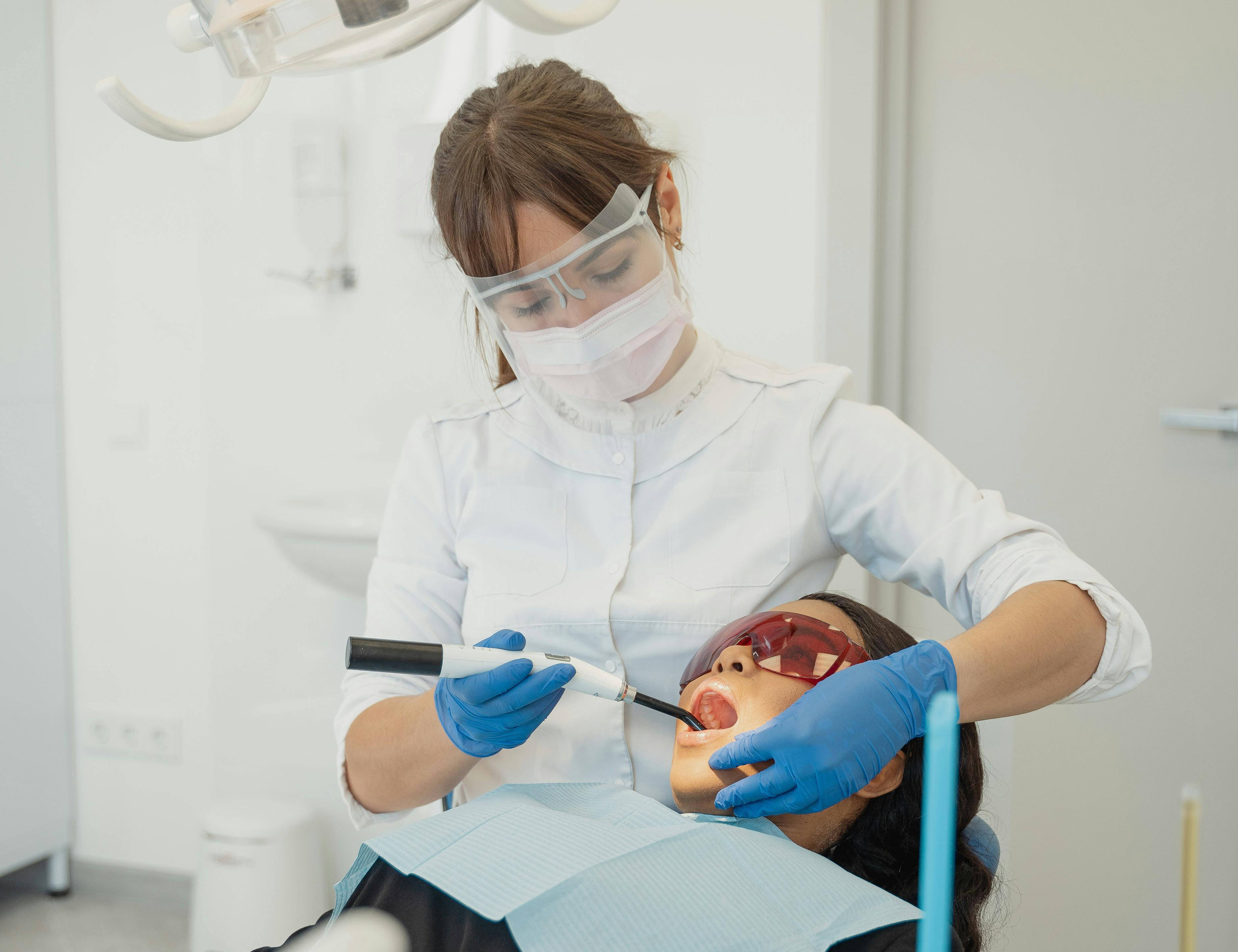Dental lasers

Dental lasers are advanced dental instruments that use concentrated beams of light energy to perform various dental procedures. These lasers are increasingly being used in dentistry due to their precision, effectiveness, and versatility. Dental lasers can be used for a wide range of treatments, including:
- 1. Soft Tissue Procedures:
Dental lasers can be used to treat gum disease by removing diseased or inflamed gum tissue, reducing gum pockets, and promoting gum tissue regeneration. They can also be used for procedures such as gum reshaping, crown lengthening, and frenectomy (removal of frenulum).
- 2. Hard Tissue Procedures:
Dental lasers can precisely remove tooth decay and prepare teeth for fillings or other restorative treatments. They can also be used for procedures such as cavity detection, enamel etching for bonding, and shaping or contouring of teeth.
- 3. Whitening:
Dental lasers can activate whitening agents to accelerate the teeth whitening process, resulting in brighter and whiter teeth in less time compared to traditional whitening methods.
- 4. Treatment of Oral Lesions:
Dental lasers can be used to treat oral lesions such as canker sores, cold sores, and oral ulcers by cauterizing and promoting healing of the affected tissue.
- 5. Pain Management:
Dental lasers can be used to reduce pain and discomfort associated with various dental procedures by sealing nerve endings and reducing inflammation.
- 6. Biopsy:
Dental lasers can be used to perform minimally invasive biopsies of oral tissues for diagnostic purposes.
Dental lasers offer several advantages over traditional dental instruments, including:
- - Precision: Laser technology allows for precise targeting of specific areas without affecting surrounding tissues.
- - Minimally Invasive: Dental lasers often result in less bleeding, swelling, and discomfort compared to traditional surgical techniques.
- - Reduced Need for Anesthesia: In many cases, dental lasers can perform procedures with minimal or no anesthesia.
- - Faster Healing: Laser procedures often promote faster healing and recovery times compared to traditional methods.
While dental lasers offer numerous benefits, they may not be suitable for all patients or all dental procedures. It's essential for dentists to undergo specialized training and certification in laser dentistry to ensure safe and effective use of these advanced instruments. Additionally, the cost of dental laser treatments may be higher than traditional methods, depending on the specific procedure and equipment used. Overall, dental lasers represent an exciting advancement in modern dentistry, offering patients innovative treatment options with enhanced precision and comfort.
Services
Dental services
know more about your treatment , symptons , procedure , costs and FAQ's.